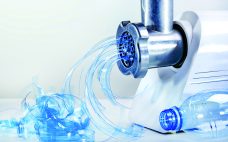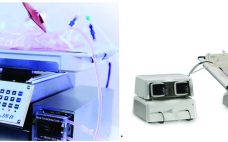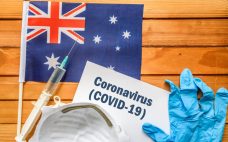With CDMO Catalent set to raise around $550 million in a public offering, some commentators believe another large acquisition could be around the corner. Contract development and manufacturing organization (CDMO) Catalent has announced the pricing of a public offering of shares of its common stock, expected to close next week resulting in proceeds of approximately $550 million. This is the third time in two years that the firm has tapped the public equity market. In July 2018, the CDMO announced…
Thursday, June 11, 2020 Daily Archives
From the Editor: June 2020
BPI‚Äôs June issue always precedes a break in our regular issue schedules in July and August. But summer does not afford us any leisure. This July, we again shall bring you an eBook of summaries from the BPI Theater at the Biotechnology Innovation Organization‚Äôs annual convention (this year from digital presentations, which will be available in full on the BPI site) along with our annual Industry Innovators issue. Summer eBook topics will be formulation, exosomes, biosimilars, and expression systems. BPI‚Äôs…
The Green Imperative: Part One ‚ÄĒ Life-Cycle Assessment and Sustainability for Single-Use Technologies in the Biopharmaceutical Industry
Much has changed since large-scale single-use biomanufacturing equipment was introduced some 15 years ago. Since then, these materials have become accepted and established in production and downstream bioprocessing. Concerns about the environmental impact of single-use (SU) biomanufacturing equipment have become more prevalent as our environmental awareness has increased and related concerns have become more urgent (1). For example, many recommendations and even laws have emerged regarding plastic convenience packaging and products (2, 3). People have become more sophisticated in appreciating…
Applications of Disposable Technologies for Upstream Bioprocessing
Over the past 10 years, a number of developments in disposable (limited use) and single-use technologies (SUTs) have been made for different bioprocess operations. Until recent years, much of the industry‚Äôs process equipment was sterilized using thermal methods such as autoclaving. Most equipment was reusable and required cleaning and sterilization before use. Such processes required validation and expensive and time-consuming resources. Production facilities relied on hard-piped, inflexible equipment such as large stainless-steel bioreactors and holding tanks. However, advanced SUTs now…
Life-Science Lawsuits: Learning from the Ordeal
Life-science companies often are cast into the role of the ‚Äúcanary in the coal mine‚ÄĚ ‚ÄĒ the first parties to be targeted and hit by lawsuits. Such companies depend on discovery, trial and error, and ultimately efficacy. None of that is a sure bet. At the same time, life-science companies are raising funds constantly to finance their work. Investors and lenders seeing less-than-projected or even ‚Äúexpected‚ÄĚ results might sue directors and officers for mismanagement, misrepresentation, or misleading financial statements. This…
Trends in COVID-19 Diagnostic Test Development
The ongoing coronavirus disease 2019 (COVID-19) outbreak caused by a novel coronavirus (SARS-CoV-2) is posing a great threat to global public health and economies. Accurate and rapid detection of the SARS-CoV-2 virus and diagnosis of infection status will play a critical role in understanding the disease, selecting appropriate treatments, controlling the spread, and developing informed back-to-work policies. Currently, a review of ongoing efforts in the development of COVID-19 diagnostic tests is lacking. For this review, we collected data on more…
Rigenerand launches CDMO biz after gene therapy facility gains approval
Regulatory approval to make gene therapies from its site in Modena, Italy has enabled biotech Rigenerand SRL to enter the advanced therapy CDMO space. Rigenerand announced last week that the Italian Medicine Authority (AIFA) has granted authorization to produce gene therapy medicinal products for clinical purposes from its site in Modena. This will allow the advancement of the firm‚Äôs lead candidate RR001 ‚Äď an autologous gene therapy being investigated to treat pancreatic cancer ‚Äď into Phase I trials but will…
CSL to make ‚Äėmolecular clamp‚Äô enabled COVID-19 vaccine for University of Queensland
A part-CEPI funded COVID-19 vaccine will be made by CSL at its site in Melbourne, Australia and will incorporate the MF59 adjuvant made by CSL subsidiary Seqirus. In January, the University of Queensland (UQ), Australia received funding of up to $10.6 million from the Coalition for Epidemic Preparedness Innovations (CEPI) to help develop its vaccine against COVID-19, caused by the novel coronavirus (SARS-CoV-2). The candidate is based on proprietary the University‚Äôs proprietary ‚Äúmolecular clamp‚ÄĚ vaccine platform, a technology that aims…








